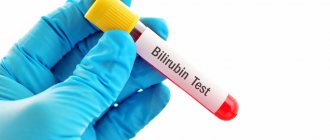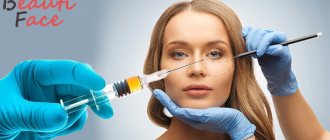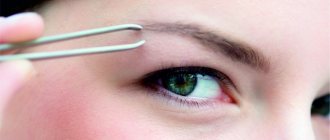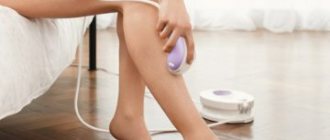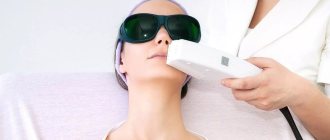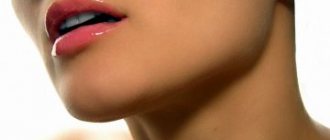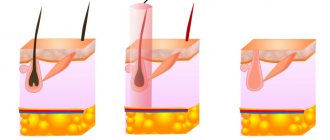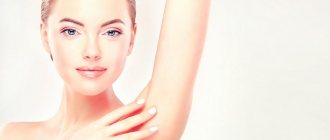For a long time, methods of removing hair from the body, the effect of which lasted for several years, were considered only a salon procedure. Now devices for home use are appearing. Photoepilation at home is one of the most common methods that girls regularly do at home. If you properly follow the rules for using the device, hairs can be removed for a long time.
Operating principle
Before using a photoepilator at home, it is important to understand the essence of its work and the features of removing hair from the body.
Photoepilators use high-impulse beams of light emitted onto the treated area. This light is absorbed by melanin, a pigment that ensures hair growth and restoration. A large influx of heat to the pigment leads to its spontaneous destruction, which ensures the death of the hairs.
There is quite a bit of melanin in light hairs, so photoepilation at home has a great effect only if it is carried out on dark hair.
How to choose the right photoepilator
To avoid problems during hair removal, as well as after it, it is important to pay attention to the choice of device.
When choosing, there are three parameters to consider:
- Processing area. It depends on which areas you plan to remove hair from.
- Flash power. The average pulse power is 5 Joules per square centimeter. It is suitable for treating most areas. You should not take a device with too low or high power.
- Flash generation speed. The higher the speed, the faster you can remove vegetation.
- Additional functions. Backlighting, sliding, size and other indicators that can help you during the manipulation or, conversely, complicate it.
Price is not always a key indicator when choosing a model; it is better to study reviews on it in more detail.
Popular brands of photoepilators
To ensure that photoepilation at home is absolutely safe and successful, pay attention to the following brands of devices for removing unwanted hair:
- Smoothskin – from 15,000 rubles;
- Philips – from 20,000 rubles;
- Iluminage – from 23,000 rubles;
- Cosbeauty – from 16,000 rubles.
Despite the fairly high price of the device, home photoepilation will in any case be cheaper than a salon one.
Benefits of photoepilation
Not only photoepilation, but also laser treatment can eliminate unnecessary hair. To make the right choice, experts recommend undergoing an examination, consulting with qualified dermatologists, and asking for reviews from those who have already undergone such procedures.
Photoepilation is a procedure that allows you to successfully deal with hairs of any shade. The laser can only cope with light-colored hair.
Modern equipment with which photoepilation is carried out ensures not only high efficiency of the procedures, but also maximum comfort. Clients positively evaluate photoepilation, enjoying smooth skin afterwards.
The effectiveness of home appliances on different parts of the body
The main condition for effective use of a photoepilator is dark hair on the body. Then, regardless of the area being treated, the device will allow you to remove unwanted vegetation from it in several sessions.
Before using a photoepilator, make sure that it is suitable for treating all areas: face, arms, legs, stomach, back, bikini.
However, keep in mind that most often photoepilation does not help remove hair from the face, since it is quite thin and light there. In this case, even salon photoepilation will not suit you.
In other areas, even home photoepilation works great. It can differ from a salon procedure only in the time spent on hair removal, since the power of devices used at home is most often lower.
Prices for the photoepilation procedure at the DasKlinik clinic:
| Photoepilation area on the body | Cost of the procedure, rub. |
| photoepilation on cheeks | 1 800 |
| photoepilation on the chin | 1 400 |
| photoepilation on the upper lip | 1 200 |
| photoepilation on the neck | 2 000 |
| complete photoepilation on hands (for women) | 4 500 |
| complete photoepilation on hands (for men) | 6 500 |
| photoepilation of arms up to or above the elbow (women) | 3 000 |
| photoepilation of arms up to or above the elbow (for men) | 4 000 |
| photoepilation on shoulders (for women) | 3 800 |
| photoepilation on shoulders (for men) | 5 200 |
| photoepilation on hands | 1 400 |
| photoepilation in the armpit area (women) | 2 000 |
| photoepilation in the armpit area (men) | 3 000 |
| photoepilation on the chest (for women) | 2 600 |
| photoepilation on the chest (for men) | 4 600 |
| photoepilation in the abdominal area (women) | 3 800 |
| photoepilation in the abdominal area (men) | 5 000 |
| linea alba | 2 000 |
| photoepilation on the buttocks (for women) | 3 600 |
| photoepilation on the buttocks (for men) | 4 600 |
| photoepilation in the classic bikini area (women) | 3 200 |
| photoepilation in the classic bikini area (muchinam) | 4 200 |
| photoepilation of sponge bikini (women) | 4 800 |
| photoepilation of deep bikini (men) | 5 600 |
| complete photoepilation on legs (for women) | 10 200 |
| complete photoepilation on legs (for men) | 14 600 |
| legs up to or above the knee (women) | 6 800 |
| legs up to or above the knee (for men) | 8 200 |
| photoepilation on the back (for women) | 10 000 |
| photoepilation on the back (for men) | 14 000 |
photoepilation: photos before and after the procedure
DasClinic offers you fast and safe hair removal on any part of the body. Make an appointment and you will appreciate the results!
Cost of photoepilation service | Photos before and after |
Doctors performing photoepilation of hair:
BOGDANOVA ANNA
Dermatocosmetologist Plastic surgeon
VAGANOV NIKOLAY
K.M.N. Plastic surgeon
ROMANOVA LIANA
Dermatovenerologist Cosmetologist
KONOREZOVA VICTORIA
Dermatovenerologist Cosmetologist
KARELINA NATALIA
Nurse
SKORODIMOVA MARINA
Nurse
INDZHGIYA LIA
Gynecologist-endocrinologist, D.M.N. Ultrasound diagnostic specialist 23 years of experience
GORELOVA IRINA GEORGIEVNA
Ultrasound diagnostic doctor
32 years of experience
Preparation
To ensure the effectiveness of the procedure and prevent the occurrence of side effects after work, attention should be paid to the preliminary preparation of the skin.
Recommendations for preparation are the same as before hair removal in the salon:
- You should not sunbathe for two weeks;
- 3-4 days before the procedure, refuse any methods of depilation;
- Use a scrub the day before to remove dead epithelial cells;
- Immediately before the procedure, thoroughly rinse the work area and dry it with paper towels.
You cannot perform the procedure during pregnancy, or while taking antibiotics, otherwise photoepilation will not be effective for you, and its implementation may affect your health.
How to do the procedure at home
After preparing the skin for the procedure, pay attention to proper settings of the photoepilator. To do this, study the manufacturer's instructions and recommendations for choosing a mode.
When using the device in intimate areas or on the face, you should choose a delicate mode that will be safe for sensitive skin.
Then follow the algorithm on how to properly do photoepilation at home:
- Apply cooling gel for photoepilation to the skin.
- Wear safety glasses.
- Start using the device. Smoothly move it over the skin while holding the button, or move it intermittently from one working area to another.
- At the end of the procedure, remove any remaining gel from the skin and clean the nozzle.
- Rinse off all hairs from the treated area.
- After the procedure, apply Bepanten or Panthenol to the skin to relieve inflammation.
Typically, processing one area at home takes up to half an hour, so a girl should not rush while using a photoepilator.
If, while using the device, you feel discomfort, burning or a sudden surge of heat to the skin that causes pain, you should change the power of the device or its mode. If hair removal is performed correctly, you should feel almost no sensations.
Post-procedure care
Despite the absolute safety of photoepilation, it is recommended to provide proper care to the skin after it is performed. It is prescribed both after a salon procedure and after performing it at home.
Care should begin immediately after the procedure:
Apply Bepanten or Panthenol to restore the structure of the treated area;
- Drink at least one and a half liters of clean water daily to ensure a sufficient amount of fluid reaches the skin and speed up the hair removal process;
- Avoid visiting the sauna, swimming pool or bathhouse for a day. You should also avoid taking a hot shower/bath and applying cosmetics to your skin (including perfume) for one day;
- Avoid using cosmetics containing alcohol;
- Avoid tanning during the entire course.
You should also reduce any mechanical stress on sensitive skin. To do this, do not use aggressive scrubs, washcloths, brushes, or hard towels.
How to prepare for photoepilation
To prepare for the procedure, you need to shave the treated area 1-2 days in advance (that is, the hairs should be 2 mm long). Important! Be sure to use a razor, depilatory creams, or pluck them at least a month before the procedure. This is the only way to ensure the required hair length for the procedure to be as effective as possible.
Before photoepilation, you should not bleach your hair or visit solariums or beaches. It is better to stop taking antibiotics and some other medications 7-10 days before the procedure.
How many sessions will it take?
Typically, one course of photoepilation includes 8-15 sessions, the number of which depends on the area where the procedure is performed, as well as the structure and color of the vegetation itself.
If we talk about how often photoepilation can be done, cosmetologists recommend doing it once every 1-1.5 months. It is this regular implementation of the technique that will ensure effective hair removal results forever.
Keep in mind that after the first session you will notice results. After a few days, the hairs will begin to fall out and will only partially grow back.
Breast photoepilation
Thick hair located on the torso is characteristic in most cases of men who actively want to get rid of such “wealth.”
Modern cosmetology procedures make it possible to fulfill such wishes. In particular, photoepilation of the chest allows you to destroy hair follicles due to the direct impact of powerful pulses of light on them.
The same photoepilation is a rare procedure if the patient is a woman, although it is not a complete exception. In women with certain pathologies, such as hirsutism, the amount of hair increases, especially around the nipples.

